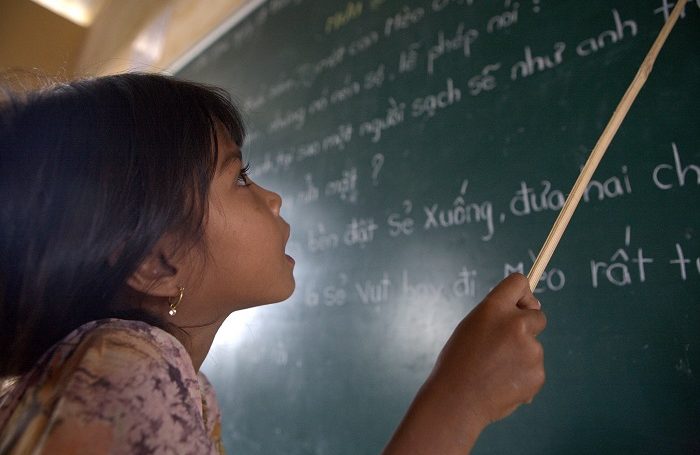
In his book Babel No More, Michael Erard attempts to find out the secrets of polyglots, those remarkable language learners who can speak, read, and write many languages. But in answering his research question, first the author must answer what it means to ‘learn’ a language. Does learning a language mean complete mastery of a language? Does it mean that a person must be fluent enough to hold an intelligible conversation? Or does it mean enough familiarity with a language to be able to ‘cram’ more information on a language in short notice, so that it can be used for a little while?
At the heart of the question is the question of whether it is better to know something deeply – as an expert – or whether it is better to know a little bit about something in order to get by when the occasion arises.
While reading Erard’s book, the question of what it means to ‘learn’ something affected me greatly because it seemed to speak to many of the issues I had during my graduate studies in International Relations (IR). When I first began my program, I labored under the illusion that it was possible for me to complete my coursework, perfect my Japanese, begin to study Chinese, and perhaps master statistics, all while fulfilling my teaching duties.
But as Michael Erard’s research found, the human mind’s ability to learn new things clearly has a limit. And, not so surprisingly, I had enough trouble just keeping up with my coursework. Learning IR theories and methods was difficult enough on its own, and thus the statistical and language skills I had hoped to acquire were neglected.
But even within my IR coursework, I was faced with that same difficult question: do I learn a few things deeply or many things broadly? Do I want to be a ‘specialist’ in one or two things or get by with many different things?
As Erard looks for the secret of the polyglot, he finds that many of those who choose to study many languages embrace a different philosophy of learning. Instead of an ‘all or nothing’ version of language learning, where native ability is the standard, many polyglots embrace a ‘something-and-something’ approach that sets the bar significantly lower and privileges the ability to move across languages and cultures more easily.
In the 21st century, a century where information moves quickly, paradigms seem to change more abruptly, technology changes more rapidly, and old theories soon become bunk, is it better to have a ‘something-and-something’ or an ‘all-or-nothing’ attitude in our approach to learning theories, methods, and skills?
Of course, there is no essentially right answer to this question. The world will always need experts. And it’s impossible to get certain jobs without expertise – indeed, the university model is built around the idea of deep expertise and many jobs in government and research will not hire non-experts. Yet, my own thinking is that, at the very least, we must cultivate our ability to do things in a ‘something-and-something’ model. Moreover, even when we have to sell ourselves as subject matter experts, we should take the most pride in our ability to traverse diverse intellectual terrains.
When the Cold War ended, experts in Soviet affairs suddenly needed something besides their deep expertise. It’s entirely possible that certain forms of expertise are equally fragile. (Perhaps becoming more fragile?) And if this is the case, we must make ourselves antifragile by having a few more ‘surge’ languages, theories, or methods under our belt – and perhaps a few things other than ‘surge’- the vaguely familiar that may one day become the very relevant.
So, how many IR languages, methods, and skills do you have some mastery of? Are you a ‘something-and-something’ or an ‘all-or-nothing’ learner?
Further Reading on E-International Relations
- Now Recruiting – IR Theory Editors
- National Imprint in IR Theory: The Global and the Exceptional of the ‘Russian Idea’
- The India-China Conflict in the Himalaya Should Break Open IR Theory
- Why the Temporal Turn in IR Should Care About Quantum Theory, and Vice Versa
- Norms, Norm Violations, and IR Theory
- The Performativity of Sovereignty: Challenging Essentialism within IR Theory